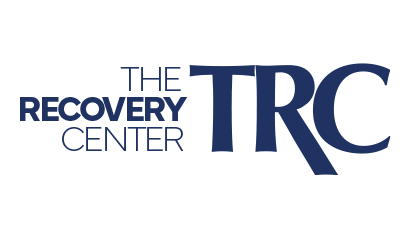IMPORTANT NUMBERS & LINKS
RESOURCES & FAQS
RESOURCES & FAQS
IMPORTANT NUMBERS & LINKS
RECOVERY RESOURCES
IMPORTANT NUMBERS AND LINKS
We encourage you to take advantage of the resources provided on this page and to seek help if you or a loved one is struggling with substance abuse.
Remember, there is hope and healing available, and we are here to help you with addiction and recovery resources every step of the way.
RECOVERY RESOURCES
IMPORTANT NUMBERS AND LINKS
We encourage you to take advantage of the resources provided on this page and to seek help if you or a loved one is struggling with substance abuse.
Remember, there is hope and healing available, and we are here to help you with addiction and recovery resources every step of the way.
Oklahoma Resources
OKC’s Crisis Center, Mental Health #988: 405-248-9368
Oklahoma City Veteran Affairs: 405-456-1000
Oklahoma Department of Mental Health and Substance Abuse Services: 405-522-3908
Oklahoma City Metro Addiction Recovery Center: 405-230-4357
Tulsa Metro Addiction Recovery Center: 918-832-6357
Substance Abuse and Mental Health Services Administration National Helpline:
National Resources
National Institute on Drug Abuse: 1-800-729-6686
National Alliance on Mental Illness: 1-800-950-6264
American Society of Addiction Medicine: 1-301-656-3920
Partnership for Drug-Free Kids: 1-855-378-4373
Links to Public Mental Health Services
Oklahoma: https://www.ok.gov/odmhsas
United States: https://www.samhsa.gov/find-help/national-helpline
National Institute of Mental Health: https://www.nimh.nih.gov/index.shtml
Substance Abuse and Mental Health Services Administration: https://www.samhsa.gov
Mental Health America: https://www.mentalhealthamerica.net
American Psychological Association: https://www.apa.org
National Alliance on Mental Illness: https://www.nami.org
American Counseling Association: https://www.counseling.org
National Association of Social Workers: https://www.socialworkers.org
American Psychiatric Association: https://www.psych.org
Shatterproof: https://www.shatterproof.org
Alcoholics Anonymous (AA): https://www.aa.org/
AA is a global support group for individuals struggling with alcohol addiction.
Al-anon.org: https://al-anon.org/
Support group for those effected by some else’s drinking.
Narcotics Anonymous (NA): https://na.org/
NA is a global support group for individuals struggling with drug addiction.
The Substance Abuse and Mental Health Services Administration (SAMHSA): SAMHSA is a federal agency that provides information and resources for individuals struggling with addiction.
The National Institute on Drug Abuse (NIDA): NIDA is a federal agency that conducts research on drug abuse and addiction, and provides resources and information for individuals and families affected by addiction.
Oklahoma Resources
OKC’s Crisis Center, Mental Health #988: 405-248-9368
Oklahoma City Veteran Affairs: 405-456-1000
Oklahoma Department of Mental Health and Substance Abuse Services: 405-522-3908
Oklahoma City Metro Addiction Recovery Center: 405-230-4357
Tulsa Metro Addiction Recovery Center: 918-832-6357
Substance Abuse and Mental Health Services Administration National Helpline:
National Resources
National Institute on Drug Abuse: 1-800-729-6686
National Alliance on Mental Illness: 1-800-950-6264
American Society of Addiction Medicine: 1-301-656-3920
Partnership for Drug-Free Kids: 1-855-378-4373
Links to Public Mental Health Services
Oklahoma: https://www.ok.gov/odmhsas
United States: https://www.samhsa.gov/find-help/national-helpline
National Institute of Mental Health: https://www.nimh.nih.gov/index.shtml
Substance Abuse and Mental Health Services Administration: https://www.samhsa.gov
Mental Health America: https://www.mentalhealthamerica.net
American Psychological Association: https://www.apa.org
National Alliance on Mental Illness: https://www.nami.org
American Counseling Association: https://www.counseling.org
National Association of Social Workers: https://www.socialworkers.org
American Psychiatric Association: https://www.psych.org
Shatterproof: https://www.shatterproof.org
Alcoholics Anonymous (AA): https://www.aa.org/
AA is a global support group for individuals struggling with alcohol addiction.
Al-anon.org: https://al-anon.org/
Support group for those effected by some else’s drinking.
Narcotics Anonymous (NA): https://na.org/
NA is a global support group for individuals struggling with drug addiction.
The Substance Abuse and Mental Health Services Administration (SAMHSA): SAMHSA is a federal agency that provides information and resources for individuals struggling with addiction.
The National Institute on Drug Abuse (NIDA): NIDA is a federal agency that conducts research on drug abuse and addiction, and provides resources and information for individuals and families affected by addiction.

